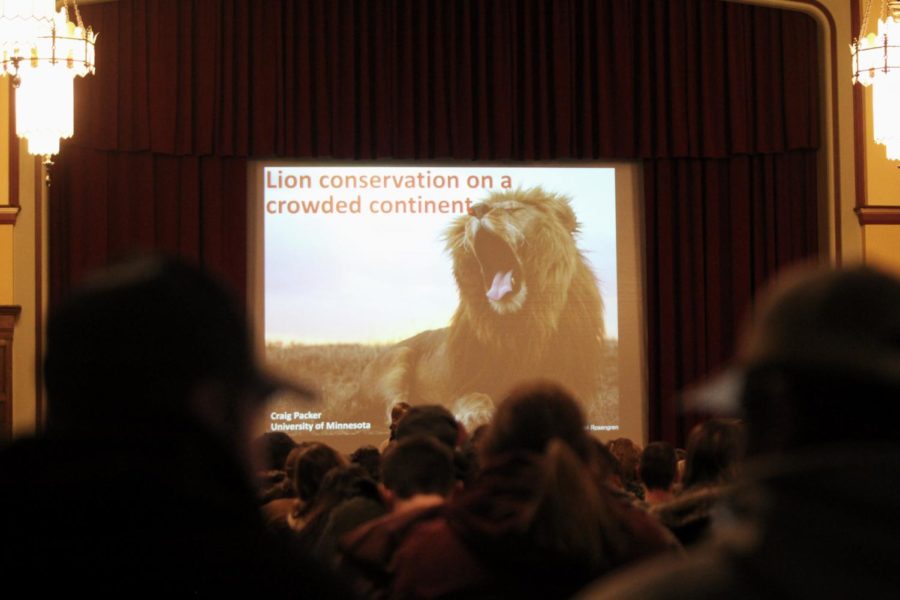Lecturer: Lions threatened by underfunding, hunting
Andrew Kowalski/Iowa State Daily
A capacity crowd in the Memorial Union’s Great Hall awaits a lecture from Craig Packer, director of the lion research center at the University of Minnesota on Nov. 27.
November 27, 2018
Craig Packer, director of the Lion Research Center at the University of Minnesota spoke Tuesday about lion conservation in his lecture, “Lion Conservation on a Crowded Continent,” at the Memorial Union.
Packer said he named his presentation due to the population growth in Africa that is expected to double by the end of the century and how difficult it could be to come up with solution so lions and humans can live sustainably together.
Packer said the first interest with lions started in the early 1900s with mass hunting from the wealthy class. The mass hunting then led to the creation of wildlife reserves.
“A number of species were recognized to being vulnerable to hunting, specifically the lion,” Packer said.
Packer said that within the last 20 years the lion population has declined by nearly 50 percent and with that comes a responsibility to create a resolution to save the lions.
“It’s going to cost a lot of money to do this and wildlife is not going to pay its own way,” Packer said.
Packer also said that within a 15-year period, an estimated 900 locals have been attacked by lions. This creates a difficulty in getting locals on board with preserving lions. Packer said his team has been studying why and how these attacks happen so frequently in order to assist the local governments in learning how to prevent the attacks.
Packer said some of the most effective methods he has conducted research on are methods such as fencing certain areas with large lion populations and herding lions.
“Either way you do this, it’s going to take a lot of time and a lot of energy,” Packer said, “So how do we pay for this?”
Packer said the more national parks are funded, the more conserved the animals are. At this point, however, many national parks are left underfunded and unfenced leading to a decline in the lion population.
“The bottom line is that Africa is incredibly underfunded,” Packer said.
Packer said there are ways to produce money for national parks in Africa, such as photo tourism. Packer said while paying to hunt lions does generate money, the price point still doesn’t fulfill the amount of money needed to fund parks.
Packer has long been conducting research for the famous Serengeti Lion Project on lion conservation and human to lion interaction.
Packer authored the book “Into Africa,” as well as over 100 scientific articles on the behavior of lions.
















